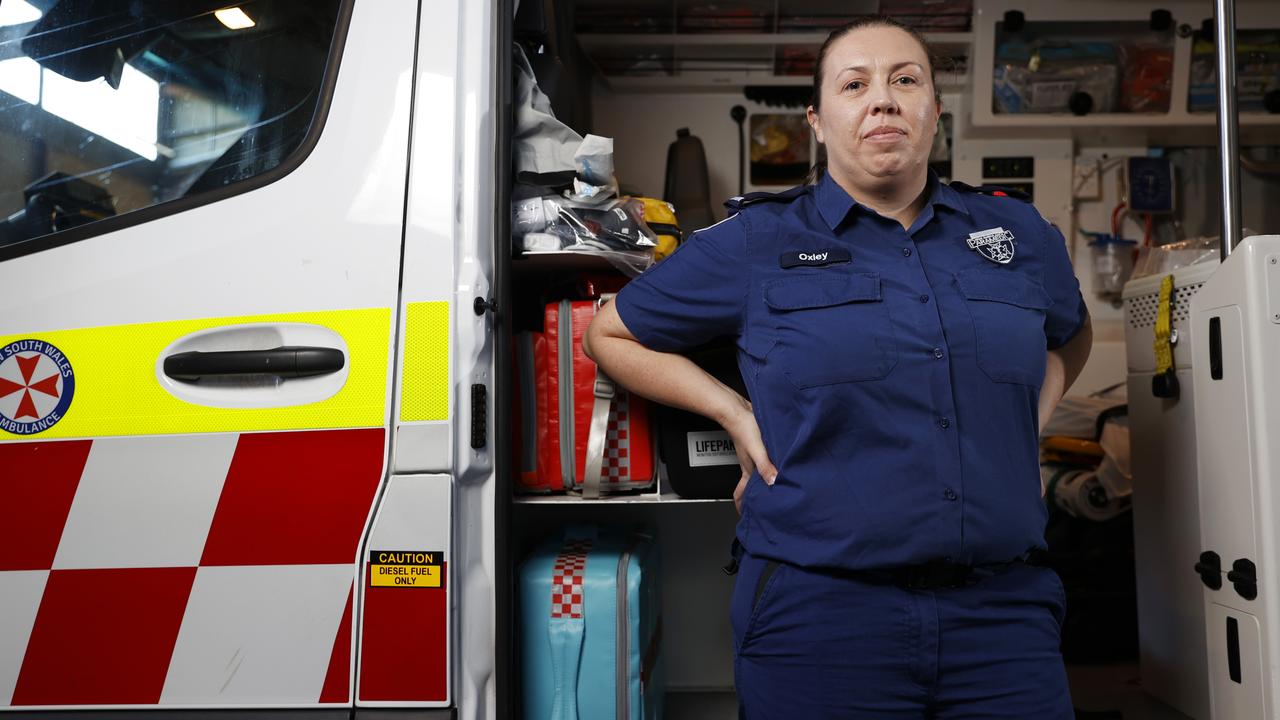Removal of public sector pay cap could see Aussie wages rise
Some of Australia’s hardest workers are facing the prospect of a $2000 pay cut thanks to an outdated rule. Removing it could help increase everyone’s wages.

During the pandemic some of the state’s most valued workers — nurses, teachers and paramedics — got a tiny pay rise of just 0.3 per cent and are now being stopped from asking for higher payrises to cover rising inflation due to a pay cap that’s been in place since 2011.
The pay cap limits New South Wales public sector workers to pay rises of just 2.5 per cent a year, something a new report says will leave them up to $6516 worse off over the next three years.
The Griffith University report Wage norms and the link to public sector salary caps estimates incomes will shrink between $1000 and $1800 per year if inflation continues as forecast and the 2.5 per cent wage cap is maintained.
The report also noted introducing higher pay rises in the public sector would help boost pay packets in the private sector — and could assist in turning around real wage declines in the wider population.
“Removing salary caps could … be expected to lead to increased incomes, consumption, and state product and improved quality of public services, including in education, health and public safety,” the report said.
Data from the Australian Bureau of Statistics show wages in Australia are lagging well behind the rate of inflation, which is running at 5.1 per cent. In comparison, the nation’s wage price index (WPI) from the March quarter showed wages grew at an annual rate of 2.4 per cent.
Paramedic and Health Services Union (HSU) delegate Tess Oxley said if the NSW Government did not agree to a higher pay rise, it would be a “bit of an insult”.
“We have given up so much over the last couple of years and worked right on the edge — putting ourselves and our loved ones in higher stress situations,” she told news.com.au.
“But not one health worker has said no to anything that’s been thrust upon us over the last two years.
“Our jobs have changed, having to wear PPE, going into situations — especially at the beginning of the pandemic — where we had no idea what we were walking into. We’ve taken on new skills and knowledge, and have all accepted that as part of our responsibility to help the community.”
Unions NSW Secretary Mark Morey said a wage rise lower than inflation — which is now around 5 per cent — would essentially be a pay cut for the 595,000-odd public sector employees in NSW.
Stream more finance news live & on demand with Flash. 25+ news channels in 1 place. New to Flash? Try 1 month free. Offer ends 31 October, 2022 >

“When the pandemic was worst they received a paltry 0.3 per cent, despite working with limited protective equipment and before vaccines were rolled out,” he said.
“Now as the cost of living surges 5.1 per cent and higher they are being asked to accept a pay cut. That’s an odd way to thank people who have risked their lives for the rest of us.”
A registered nurse would stand to lose $1986 this financial year, a year 2 paramedic ($2015), qualified firefighter ($2216), teacher on a band 2 salary ($2509) and a NSW Police senior constable would be $2624 worse off.
It comes as even the Fair Work Commission is expected to put in place a 4 to 4.5 per cent nominal increase to the national minimum wage and modern award minimum wages, according to some analysts.
NSW public sector workers will meet today to plan whether to take industrial and political action ahead of the NSW Budget due to be handed down on June 21. They would like the pay cap removed so they can negotiate payrises on an industry by industry basis.
The report said real wages in Australia had fallen in six of the past seven quarters, despite growth in labour productivity.
“The latest forecasts, issued by the Reserve Bank, are for further declines in real wages,” it noted.
“Maintenance of the NSW public sector salary cap would see significant drops in the real wages of NSW state public sector occupations such as nurses, paramedics, teachers, bus drivers, prison officers, and police.
“These real wage cuts would be even greater than those applying to the rest of the workforce.
“Unusually, this comes at a time when the economy is experiencing strong economic and employment growth.”

Ms Oxley, who works in Sydney’s south west, said she is still busier than she has ever been in her career, which spans 12 years.
“We still have Covid cases coming through, we’re starting to get winter illnesses coming through and we are beginning to see a bigger uptick of socially related injuries, like sports related injuries or that happen when people are out drinking,” she said.
Covid was also still having a massive impact on her and others working as paramedics.
“I still haven’t been to a supermarket as I worry about catching something and passing it on to someone at work, or catching something at work and spreading it to the public,” she said.
“It’s still having a lingering effect where everyday aspects of my life are being affected by what I do for work.”




